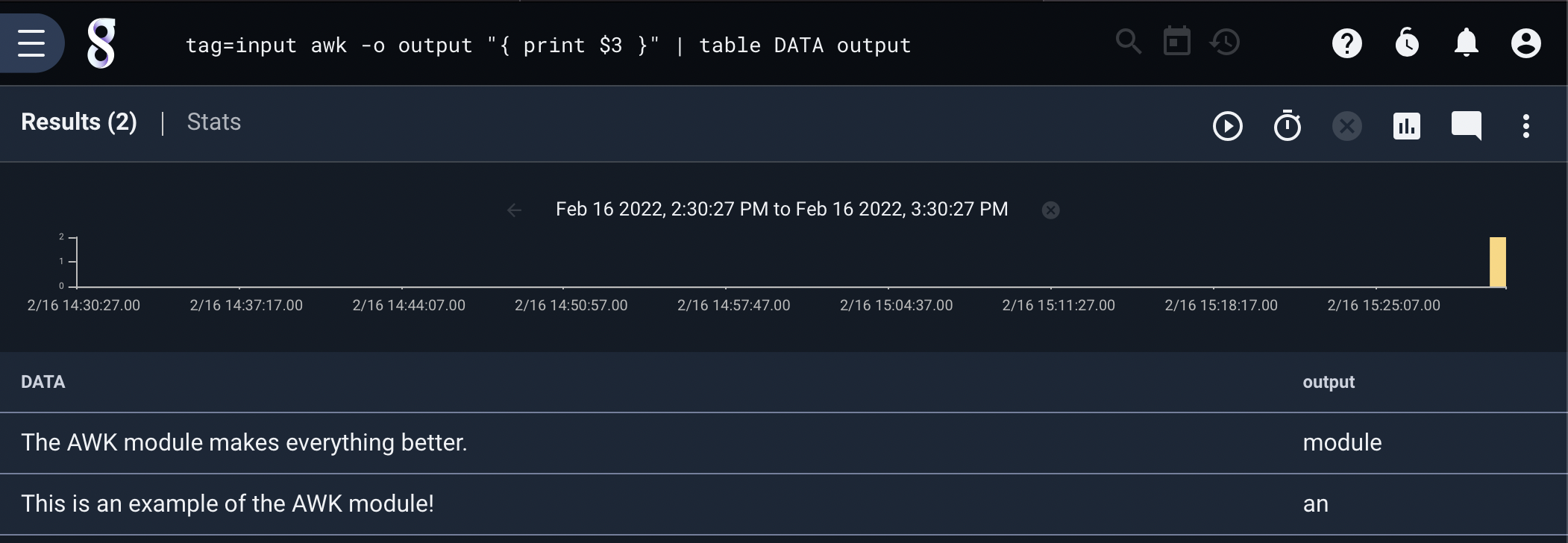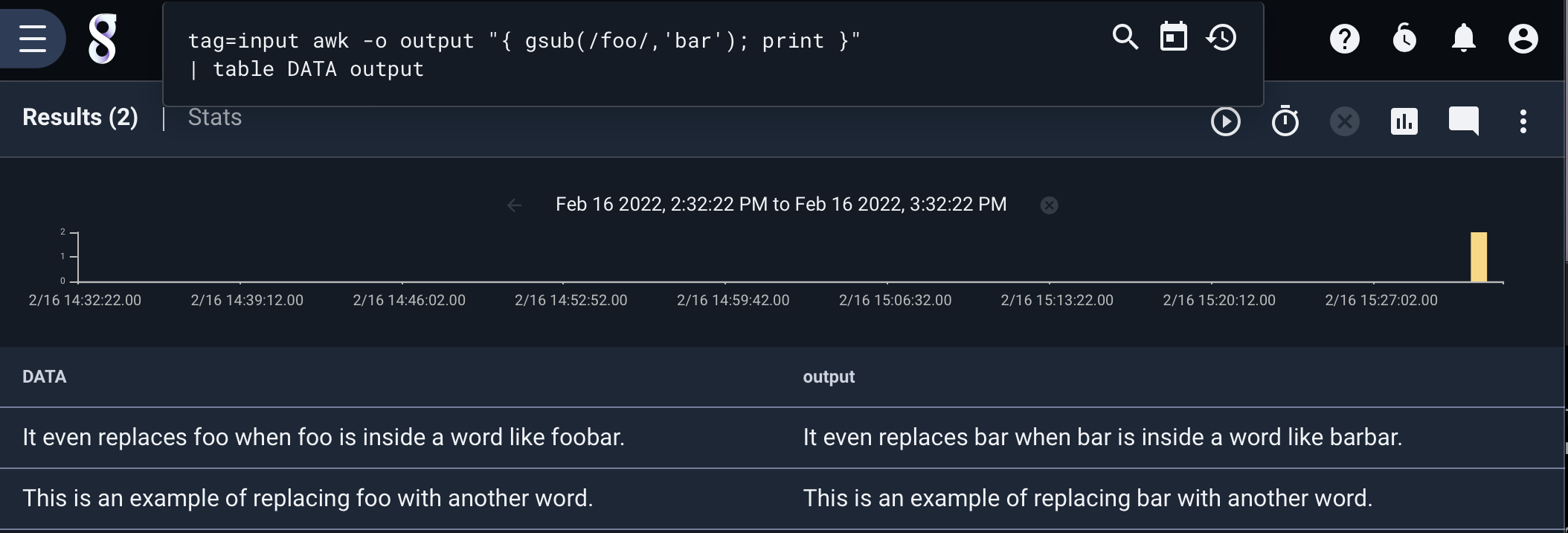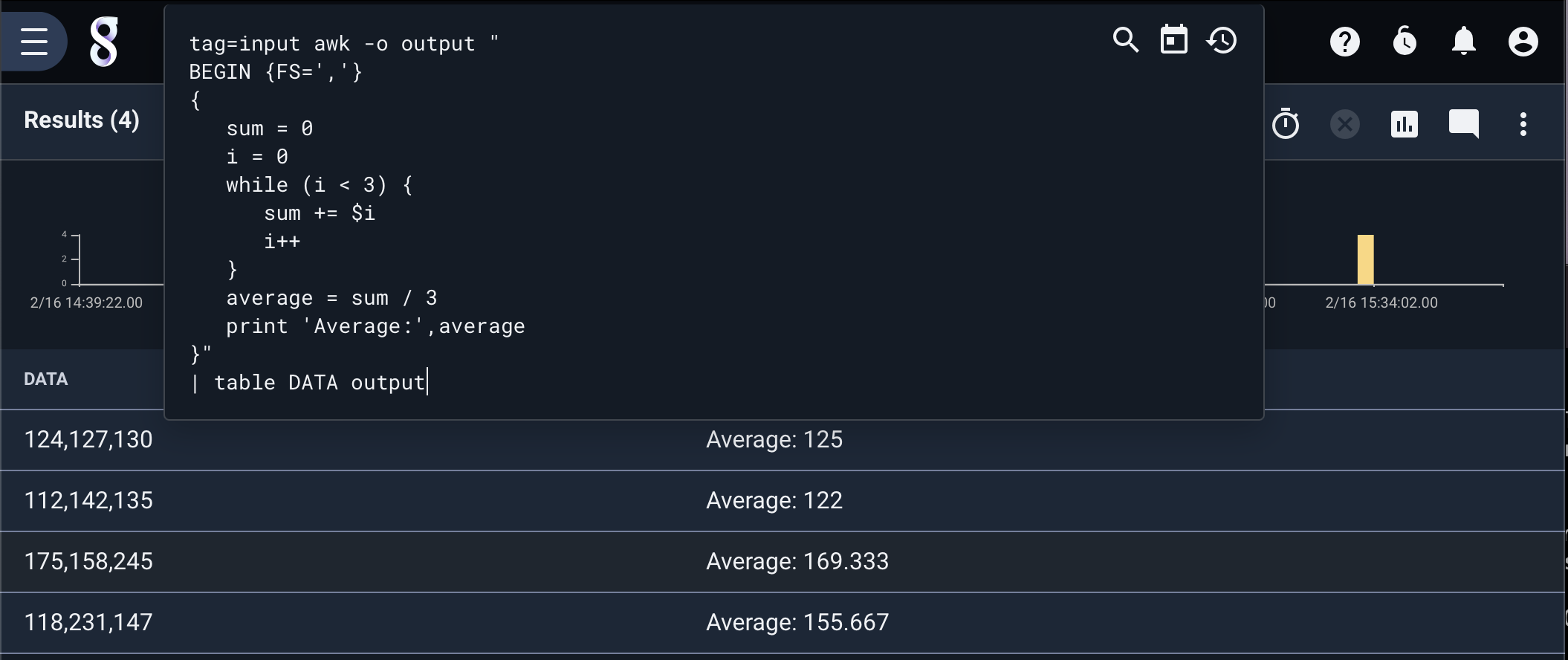Awk#
The awk module is a fully functional implementation of the awk programming language, and conforms to the POSIX AWK specification. awk is used for filtering, pattern matching, and textual data processing.
The AWK programming language is beyond the scope of this documentation. You can find a full description of the language in the AWK specification.
Supported Options#
-e: Use an enumerated value as the input instead of the raw data.-o: Set the output enumerated value. By default, the output will be set to the input enumerated value (or the raw data if-eis not set).
Examples#
Printing tokens#
In this example, we simply print the third token in a whitespace delimited input stream.
tag=input awk -o output "{ print $3 }" | table DATA output

Global find and replace#
This example replaces all instances of the characters “foo” with “bar”.
tag=input awk -o output "{ gsub(/foo/,'bar'); print }" | table DATA output

Taking the average of numeric CSV records#
This example takes a per row average of comma delimited numbers.
tag=input awk -o output "
BEGIN {FS=','}
{
sum = 0
i = 0
while (i < 3) {
sum += $i
i++
}
average = sum / 3
print 'Average:',average
}"
| table DATA output
